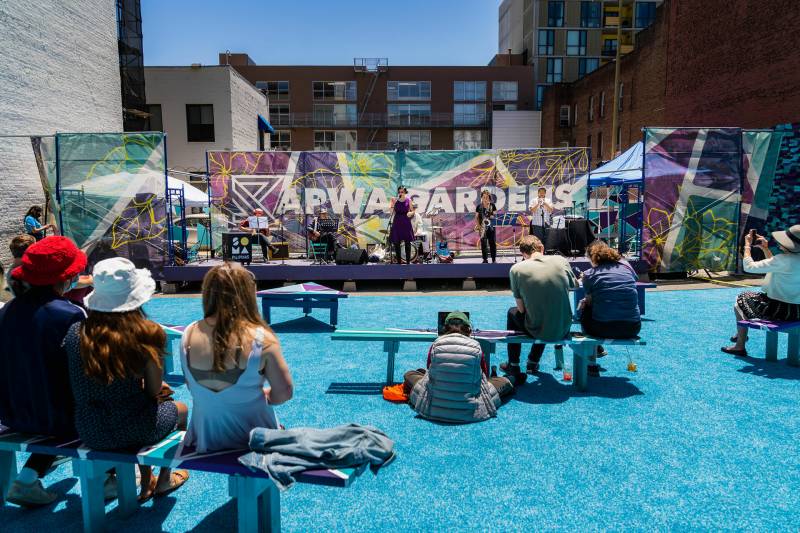A live entertainment program that launched in San Francisco during the pandemic could become permanent under a proposal by Mayor London Breed.
The city’s Entertainment Commission has issued 250 Just Add Music—or JAM—permits since it launched the program last September. The permit allows neighborhood businesses, like restaurants and bars, to host outdoor music and other performances.
“The JAM Permit created this pathway for businesses to be able to provide entertainment and amplified sound in their outdoor spaces,” says executive director of the San Francisco Entertainment Commission Maggie Weiland. “And this is because all of our small businesses that were able to make it economically feasible to operate were taking it outside.”
Weiland says the entertainment commission has been issuing entertainment and outdoor amplified sound permits for nearly 20 years. But elements of the city’s police code and municipal code meant that San Francisco didn’t have a thriving outdoor entertainment scene before the pandemic.
“And so JAM has provided a way to do it temporarily, and now the mayor wants to provide our community with more of a pathway to activate on a longer term, more recurring basis,” Weiland says.


